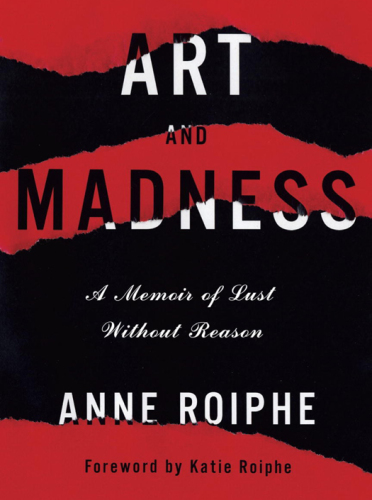
Art and Madness
A Memoir of Lust Without Reason
- اطلاعات
- نقد و بررسی
- دیدگاه کاربران
نقد و بررسی

January 10, 2011
Roiphe's sharp, dazzling memoir of her literary youth in late 1950s and early 1960s New York City contains a dark story of untenable marriages, alcoholism, and outrageous sexism. Raised on Park Avenue in New York City, a graduate of Sarah Lawrence in 1957, Roiphe (Epilogue) was devoted to nonconformity at all costs, art worth dying for, and a brilliant if vaguely envisioned future "as a muse to a man of great talent." Married early to a hard-drinking, egotistical playwright, she typed his plays and supported him with secretarial work, attended parties where guests indulged in adultery and alcohol with equal enthusiasm and self-sabotage. Her marriage dissolved, and saddled with a small child, Roiphe had affairs with Paris Review founders "Doc" Humes and George Plimpton, among others, and finally found a new father for her child, who happened to be a doctor. Roiphe's narrative moves in punchy, spare episodes, nonchronologically and erratically, veering from past to present tense, and requiring effort on the part of the reader. Yet she is a masterly writer: her work presents vivid, priceless snapshots of the roiling era of Communist hysteria, faddish homosexuality, male privilege, and the heartbreaking fragility of talented men and their dreams of fame.

November 15, 2010
A crafty, veteran novelist and memoirist (Epilogue, 2008, etc.) recalls her coming-of-age as a sexy smarty-pants.
Roiphe effectively evokes the atmosphere in which a clever, pretty Jewish girl from Park Avenue might aspire to have it all, particularly if she was ready to provide whatever a needy poet, painter or playwright yearned for at the moment. Art, literature, rebellion and angst—that was life. Fresh from the sisterhood of Smith College, the author landed directly in the hot intellectual dormitory that was midcentury New York City. It was a world in which Arthur Kopit and Jack Gelber heatedly discussed Samuel Beckett and Jean Genét, where Terry Southern debated, where George Plimpton held court. Mailer and Styron were there, too. (The author notes that some names are changed in the interest of privacy). The nubile author's postgraduate education in the arts featured encounters, frequently in bed, with such lubricious artistic teachers. They were famous and unknown, wealthy and poor, struggling aspirants and swindling liars, gay, straight, bisexual, soaked in alcohol and mostly oversexed. Roiphe discusses the awkward loss of her virginity and subsequent marriage to a feckless, failed poet and playwright. She eventually had a child and remarried. In the mob of self-centered tricksters, all she wanted was to be a writer, and she succeeded quite pleasingly. The foreword is provided by journalist daughter Katie, who writes that "this book is the record of an idea as it moves through a life: the idea is the supreme and consuming importance of art."
A sharp, graphic potrayal of bohemian times that thoughtfully reveals the young woman the author once was.
(COPYRIGHT (2010) KIRKUS REVIEWS/NIELSEN BUSINESS MEDIA, INC. ALL RIGHTS RESERVED.)

December 1, 2010
In this bold book, Roiphe (Epilogue: A Memoir), a veteran novelist and memoirist, focuses on her years among the literary icons of the late 1950s and 1960s. Growing up in a wealthy, dysfunctional Jewish family in New York, she looked to artists and writers as her salvation. At 23, she married Jack Richardson, a promising playwright. Putting her own writing ambitions on hold, she typed his manuscripts and patiently tolerated his promiscuity and drunkenness. She stayed with Jack for eight years, all the time worrying what kind of life she was giving her daughter. In addition to providing amusing accounts of George Plimpton's boozy parties, where she often spent her evenings with important writers of the era, from Norman Mailer and Doc Haines to William Styron, Roiphe analyzes the effect of alcohol and crazy lifestyles on the writers as well as their wives, who were supposed to serve as patient muses, her colorful, staccato prose capturing the restless energy of the time. VERDICT This book will appeal to Roiphe's fans, feminists, and memoir lovers.--Nancy R. Ives, SUNY at Geneseo
Copyright 2010 Library Journal, LLC Used with permission.

January 1, 2011
Guaranteed a place in the pantheon of feminist writers, Roiphe has written memoirs about her childhood, marriage, motherhood, and widowhood, yet she has always glided over her twenties. Now we understand why. Roiphes fiercely candid account of her struggles during the cold-war era is propulsive and abrading in its exposure of unquestioned sexism and the elevation of art (made by men only) over life. Roiphe eschews chronology, instead setting out indelible incidents like the recovered shards of broken vessels, tagging each with a year. Determined to become a writer and escape the hypocrisy of her depressed mothers pearl-and-white-gloves set, Roiphe ends up marrying an unstable, hard-drinking, and promiscuous writer and fully embracing the role of muse. She supports him and has his child, a tempestuous daughter she takes everywhere, including to George Plimptons now-legendary literary parties. Roiphe does name names, but she also keenly analyzes epoch-defining shibboleths and failings in lacerating tales of alcohol-exacerbated male egomania and artistic ambition and the brazen exploitation of women enthralled by the fantasy of serving greatness. We have come a long way.(Reprinted with permission of Booklist, copyright 2011, American Library Association.)




دیدگاه کاربران